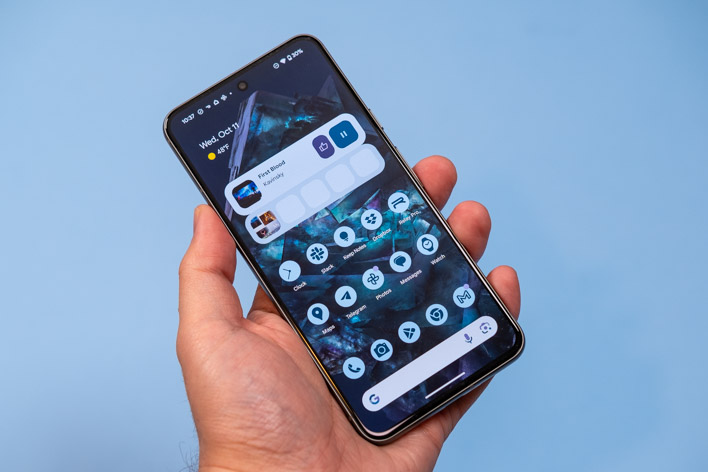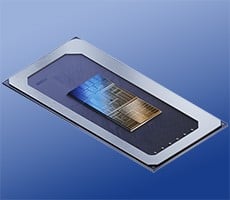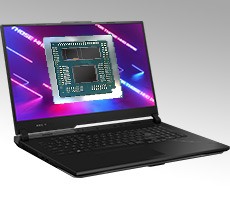Pixel 8 And Pixel 8 Pro Review: Artificially Intelligent, Naturally Elegant
Pixel 8 and 8 Pro Battery Life
The Pixel 8 and 8 Pro do offer a meaningful boost to battery life compared to last year's phones, particularly in the case of the Pixel 8. In the PCMark battery rundown test, the Pixel 8 beats phones like the OnePlus 10T, Pixel 7a, and the Galaxy S23 Ultra. The Pixel 8 Pro shows a significant improvement over its predecessor, even if it doesn't reach the upper echelons of the benchmark.Both phones have lasted us all day and then some with moderate to heavy use consisting of web browsing, voice calls, streaming video, and some light gaming. And that's even with the new, higher refresh rate on the Pixel 8. The phones have slightly larger battery capacities, and the Tensor G3 uses newer, more efficient cores. These changes have definitely paid off.
Pixel 8 and 8 Pro Conclusion: The Right Stuff
Google has found a formula that works with the Pixel line. The Pixel 6 was a huge improvement over older models. The Pixel 7 and now Pixel 8 and Pixel 8 Pro represent iterative improvements—still, they are improvements. When you account for the camera benefits, new AI features, and the iPhone-like extended support, this is a hefty update to the Pixel family.We like the rounder chassis of the Pixel 8 and 8 Pro, and the flat screen on the Pro looks much better. The 120Hz refresh on the smaller phone makes it look every bit as smooth as the Pro, and any battery life impact from the 60Hz base refresh is masked by the smaller display. The improved outdoor readability is nice, too.

The camera is undeniably a major selling point with these new Pixel devices. While we don't love Google's decision to lock manual controls to the Pro model, the Pixel 8 camera is fantastic even without that. It snaps the clearest, most accurate photos of any phone we've tested, and editing features like the newly upgraded Magic Eraser are genuinely useful. In short, if you're not technically a pro user anyway, you're likely not going to miss the pro shot mode in the Pixel 8 anyway.
Google's Pixel version of Android looks refined in the era of Material You, and you'll see more of those themed elements sprinkled around Android 14. In addition, not only do these phones come with the latest version of Android, they'll stay up-to-date for an impressive seven years. It's hard to say if you'll still want to use the Pixel 8 in 2030, but it will be safe security-wise to do so.
If you've got the Pixel 7 / 7 Pro and like them, this may not be as big an upgrade for you. If you are on an older Pixel (or a different phone entirely) and yearning for an upgrade, the Pixel 8 or 8 Pro will impress. Pricing has inched up $100 this year to $700 for the Pixel 8 and $1,000 for the Pixel 8 Pro. The Pro has a bigger, better display and more camera features, but the Pixel 8 is otherwise identical. The Pixel 8 is still a solid deal at $700, and that's the one most mainstream users should probably get, unless you want that lager display and pro camera mode. If Google ever doubles back and gives the Pixel 8 manual camera controls as well, it will be a slam dunk. In the meantime, depending on your budget, you can't go wrong either way with the new Pixel 8 and Pixel 8 Pro, and we're giving both our coveted Editor's Choice award.







